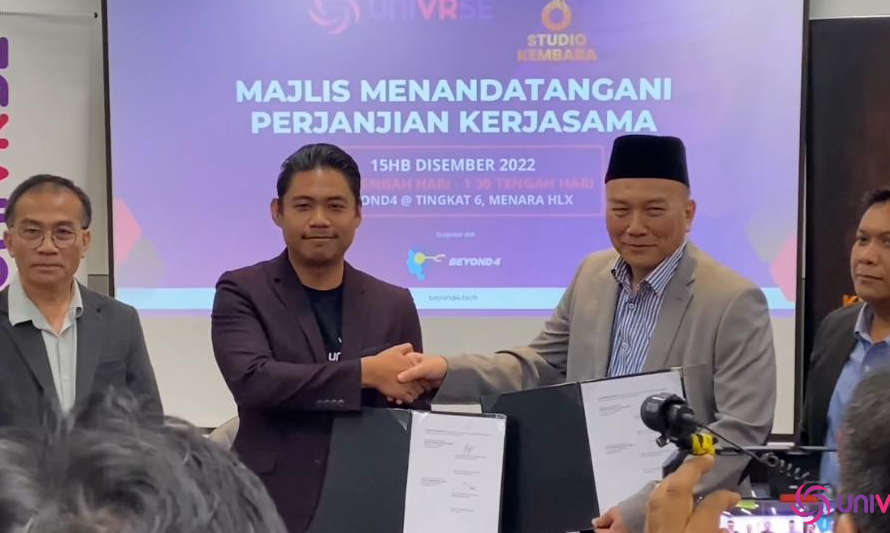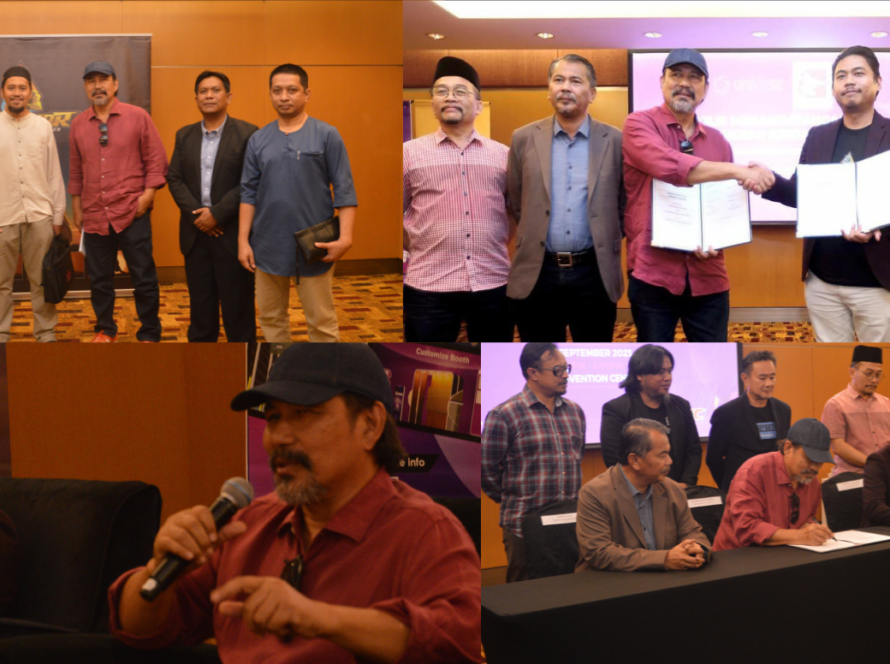UniVRse recently participated in Hong Leong Bank‘s (HLB) “Can You Hack It 2022” hackathon which focused on re-imagining banking experiences through hyper-personalisation and the metaverse.
Team UniVRse, which made it as one of the top three contestants, pitched a futuristic solution for conventional financial institutions which involved lifestyle-oriented banking experiences set in the metaverse. This approach led to the team winning one of the two runner-ups positions.
Domenic Fuda, Group Managing Director and Chief Executive Officer of HLB, believes strongly in the potential of the direction in which the Metaverse is heading and where it can take the current conventional financial services infrastructure in the coming years.
With a strong potential to create a highly immersive virtual user experience where customers have access to banking services from the comfort of their homes, including virtually visiting established branches for financial advisory, Metaverse will lead the next disruption in the banking and financial services industry, according to the GMP.
A vision for the future of financial services
As part of the UniVRse proposal to HLB, an amalgamation of numerous features were stated as potential pillars for the Metaverse extension into financial services.
A MetaBank could theoretically instill virtual spaces for visitors to explore and exciting digital facilities to interact with, from access to a mobile phone experience of the Metaverse with Avatar progression and achievements, to VIP private lounges, virtual personal vaults for secure storage of financial assets, and incorporated e-wallets for virtual purchases.
Other possible additions include customer service centers, game arenas where visitors can participate in contests and competitions to redeem prizes.
UniVRse excels in providing this solution by making the Metaverse extremely accessible and visually exciting with reinforced system stability, solid security and full customization in regards to the virtual spaces used by organizers.
Enormous potential with Metaverse adoption
As the next big technology innovation, the metaverse is opening doors to new markets, revenue streams and business models across a multitude of verticals, regions, and industries. This includes the financial services sector but stretches far and wide to include many other use cases.
Essentially, the Metaverse as we currently understand it is a notion that is becoming more and more sophisticated in the digital sphere, promising extraordinary prospects for billions of people through interconnected Web3 services and technology.
To go a little further, the Metaverse presents a future in which we can benefit from a greater degree of overlap between our real-world and virtual existences. Consumer-facing immersive technology firms use XR technologies, such as the iPhone’s LiDAR scanner, to display augmented reality (AR) content.
The NFT and blockchain technologies have also opened up a lot of potential for digital artists, allowing them to sell their work on the Metaverse service. Users can take their purchased digital products, including avatar apparel, and use them across other sites as inoperable Metaverse services have grown in popularity.
Numerous Metaverse-oriented organizations prioritize decentralization and inclusion. It challenges us to envision a world in which we have full control over our digital interactions and can access them from a variety of locations. Web3, the subsequent stage of the internet, and consequently the Metaverse, are still in their infancy. Yet, the formation of the founding blocks for the future of this innovative landscape will most likely be determined by the earlier adopters of such technology.
The Metaverse/Web3 environment is constantly improving thanks to new technology. XR, blockchain, and AI are the three types of technology that are most frequently related to the landscape.
The next generation takes the lead
According to numerous experts and analysts, the next generation is set to lead the economic and consumer behavioral shift in the coming years.
For instance, the Gen Z generation’s claims that they want to reinvent what corporate responsibility looks like have a true air of authenticity to them. And the emphasis on values has been one of the most important findings of the research over the past few years. Beyond the obvious offerings, they are truly attempting to comprehend what drives businesses.
In terms of consumer power, Gen Z already accounts for 40% of global consumers and are expected to comprise most of the demographic of digital buyers in the next few years.
When it comes to certain integral aspects of finance, the younger generation have expectations for faster mobile experiences, and a borderless, frictionless paradigm for banking products and services. Evidently, a lot of importance is emphasized in the realm of digital or virtual capabilities, which also leads to higher expectations for convenience and efficiency. What’s more, the younger generation spends an average of 5 hours a day in the Metaverse – a network of Web3 technologies that relate to our everyday lives.
UniVRse has built their Metaverse concept on the premise on these major factors, with the outlook on a future that is led firmly by the newer generations who are after fresh, new, and exciting perspectives of conventional infrastructures whether it’s financial necessities or entertainment preferences.
With this goal in mind, UniVRse sets its sights on building a comprehensive and superior Metaverse platform for businesses, exhibitors, organizers, and service providers to connect and engage with the future leaders of tomorrow in a virtual setting filled with endless possibilities.



